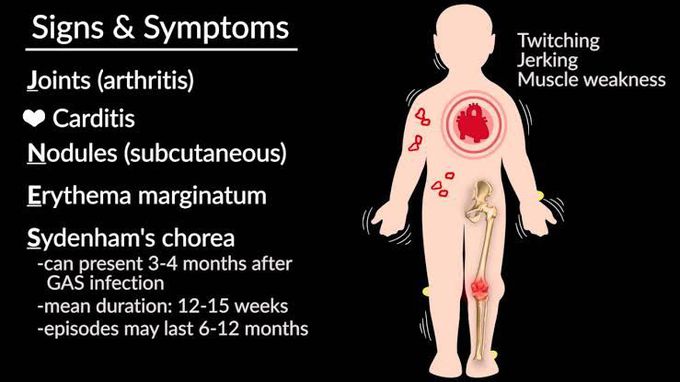


Treatment of rheumatic fever
The goals of treatment for rheumatic fever are to treat the infection, relieve symptoms, control inflammation and prevent the condition from returning. Treatment for rheumatic fever may include: Antibiotics. Penicillin or another antibiotic is typically prescribed to treat the strep bacteria. After the first antibiotic treatment is fully finished, a provider typically prescribes another course of antibiotics to prevent recurrence of rheumatic fever. Preventive treatment will likely continue through age 21 or until a child completes a minimum five-year course of treatment, whichever is longer. People who have had heart inflammation during rheumatic fever might need to continue preventive antibiotic treatment for 10 years or longer. Anti-inflammatory drugs. Aspirin or naproxen (Naprosyn, Naprelan, Anaprox DS) can help reduce inflammation, fever and pain. If symptoms are severe or a child doesn't get better with anti-inflammatory medicines, a corticosteroid might be prescribed. Don't give a child aspirin unless a care provider tells you to do so. Antiseizure drugs. Medications such as valproic acid or carbamazepine (Carbatrol, Tegretol, others) may be used to treat severe involuntary movements caused by Sydenham chorea.
What is Rheumatoid Arthritis? | Johns Hopkins RheumatologyAnkylosing Spondylitis | HLA-B27, Pathophysiology, Signs & Symptoms, Diagnosis, TreatmentWhat is scoliosis?Osteosarcoma - Pathology, Symptoms, Diagnosis, TreatmentExternal nose bones

